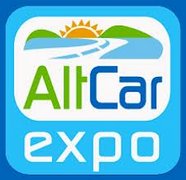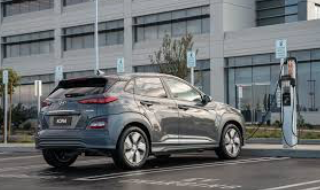Fuel economy and emissions rule: California clean air regulators met with Trump administration officials on Wednesday to work on resolving their conflict over clean vehicle emissions and mileage  standards. The Trump administration had set off protests and lawsuit filings with its Safer and Affordable Fuel Efficient Vehicles rule that would freeze the mpg and emissions rules at 2020 levels through 2026. It would also take away California’s power to set state emissions rules — which is being followed by a dozen other states and the District of Columbia. Officials said they agreed to hold future meetings to work out the national fuel economy and greenhouse gas emission standards. California Air Resources Board chair Mary Nichols last month told Reuters that she sees a “window” to making a deal this fall.
standards. The Trump administration had set off protests and lawsuit filings with its Safer and Affordable Fuel Efficient Vehicles rule that would freeze the mpg and emissions rules at 2020 levels through 2026. It would also take away California’s power to set state emissions rules — which is being followed by a dozen other states and the District of Columbia. Officials said they agreed to hold future meetings to work out the national fuel economy and greenhouse gas emission standards. California Air Resources Board chair Mary Nichols last month told Reuters that she sees a “window” to making a deal this fall.
NIO going public: Chinese electric-vehicle maker and Tesla-rival NIO Inc. launched a U.S. stock sale that could raise up to $1.32 billion and bring its market valuation up to about $8.5 billion. That would happen before the startup has generated any substantial revenue. The Shanghai-based company is planning to list on New York Stock Exchange in about two weeks.
Lyft also going public: Lyft has started the process for an initial public offering in an effort to beat Uber to the public markets, sources said. The ride-hailing firm has hired IPO adviser Class V Group LLC to guide Lyft management, said people familiar with the discussions who asked not to be identified. Banks will be pitched as financial backers as soon as September with the listing targeted for March or April. In another story, Toyota Motor Corp. announced a $500 million investment in Uber to jointly develop autonomous vehicle technology. The ride-hailing giant will integrate Toyota’s Guardian autonomous technology into Toyota Siennas for use in Uber’s ride-hailing network.
AltCar Expo coming in October: The 13th annual AltCar Expo & Conference will be held Oct. 12-13,  2018, at the Santa Monica Civic Auditorium. This year’s conference will focus on California’s trailblazing commitment to alternative technology transportation, infrastructure and energy. “AltCar has become the most nationally respected event for industry, municipalities and general public that showcases the latest products, news and information for alternative technology vehicles and infrastructure,”says California State Senator Fran Pavley.
2018, at the Santa Monica Civic Auditorium. This year’s conference will focus on California’s trailblazing commitment to alternative technology transportation, infrastructure and energy. “AltCar has become the most nationally respected event for industry, municipalities and general public that showcases the latest products, news and information for alternative technology vehicles and infrastructure,”says California State Senator Fran Pavley.
On Friday, Terry Tamminem, CEO, Leonardo DiCaprio Foundation, will make opening remarks. Panel topics include legislative issues, “Current and Ongoing OEM Commitments to Alternative Technology Vehicles,” and “Alternative Technology Transportation – ‘No Turning Back.’” Friday will feature the Industry & Fleet Conference, and the Expo and Ride & Drive is open to industry and the public. Those attending the Friday speaker panels can find an early bird discount here.

 108 highway, and 120 combined. The range rating puts it in a small league with above 200-miles per charge vehicles that includes the Chevy Bolt, Tesla Model 3, Tesla Model S, and Tesla Model X. The Kona Electric is powered by a 64 kWh battery that has a 150 kW and 395 Nm electric motor (front-wheel drive), and a top speed of 104 mph. It has 100 kW CCS Combo DC fast charging capability.
108 highway, and 120 combined. The range rating puts it in a small league with above 200-miles per charge vehicles that includes the Chevy Bolt, Tesla Model 3, Tesla Model S, and Tesla Model X. The Kona Electric is powered by a 64 kWh battery that has a 150 kW and 395 Nm electric motor (front-wheel drive), and a top speed of 104 mph. It has 100 kW CCS Combo DC fast charging capability. provocative tweet Tuesday
provocative tweet Tuesday